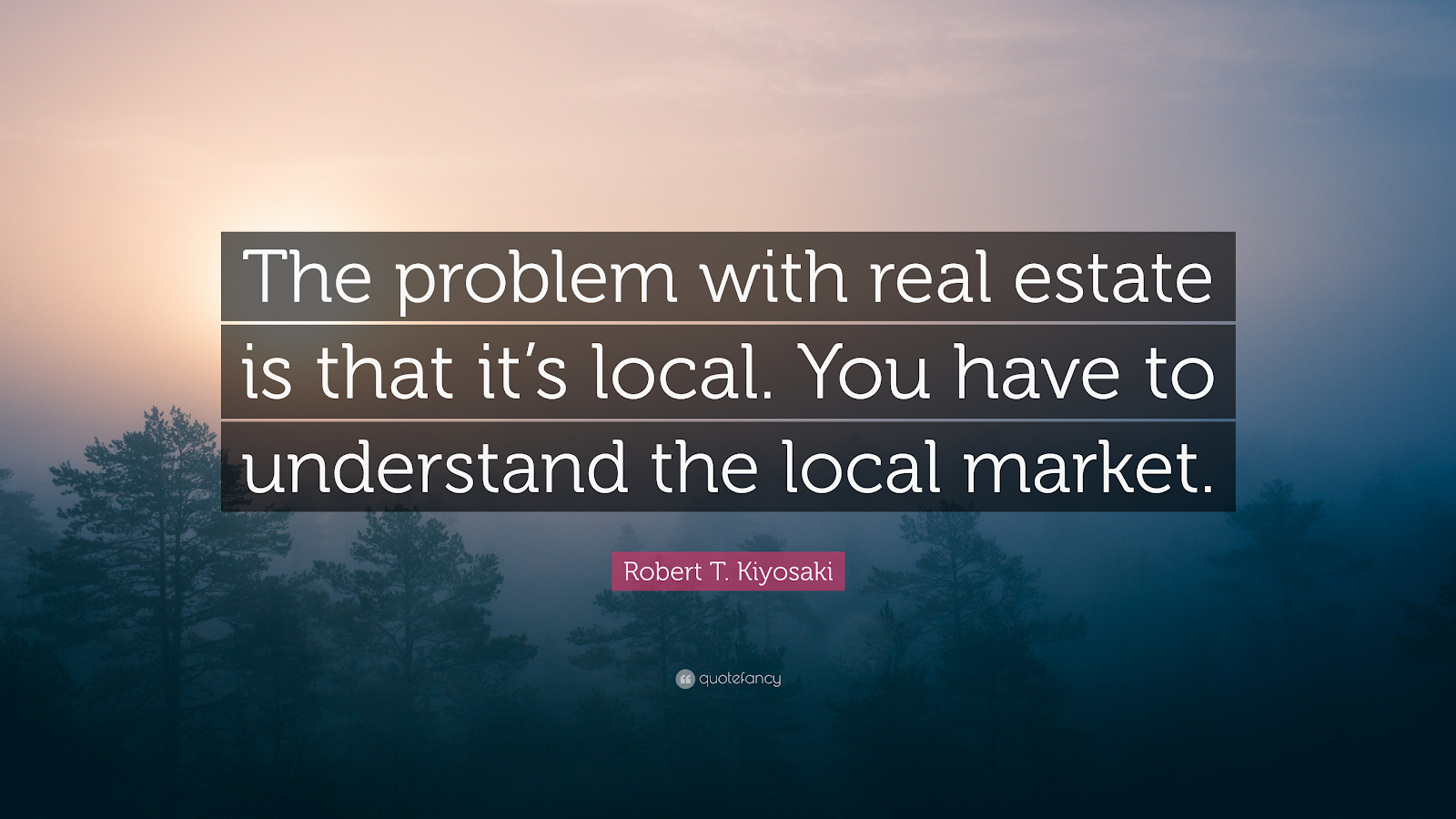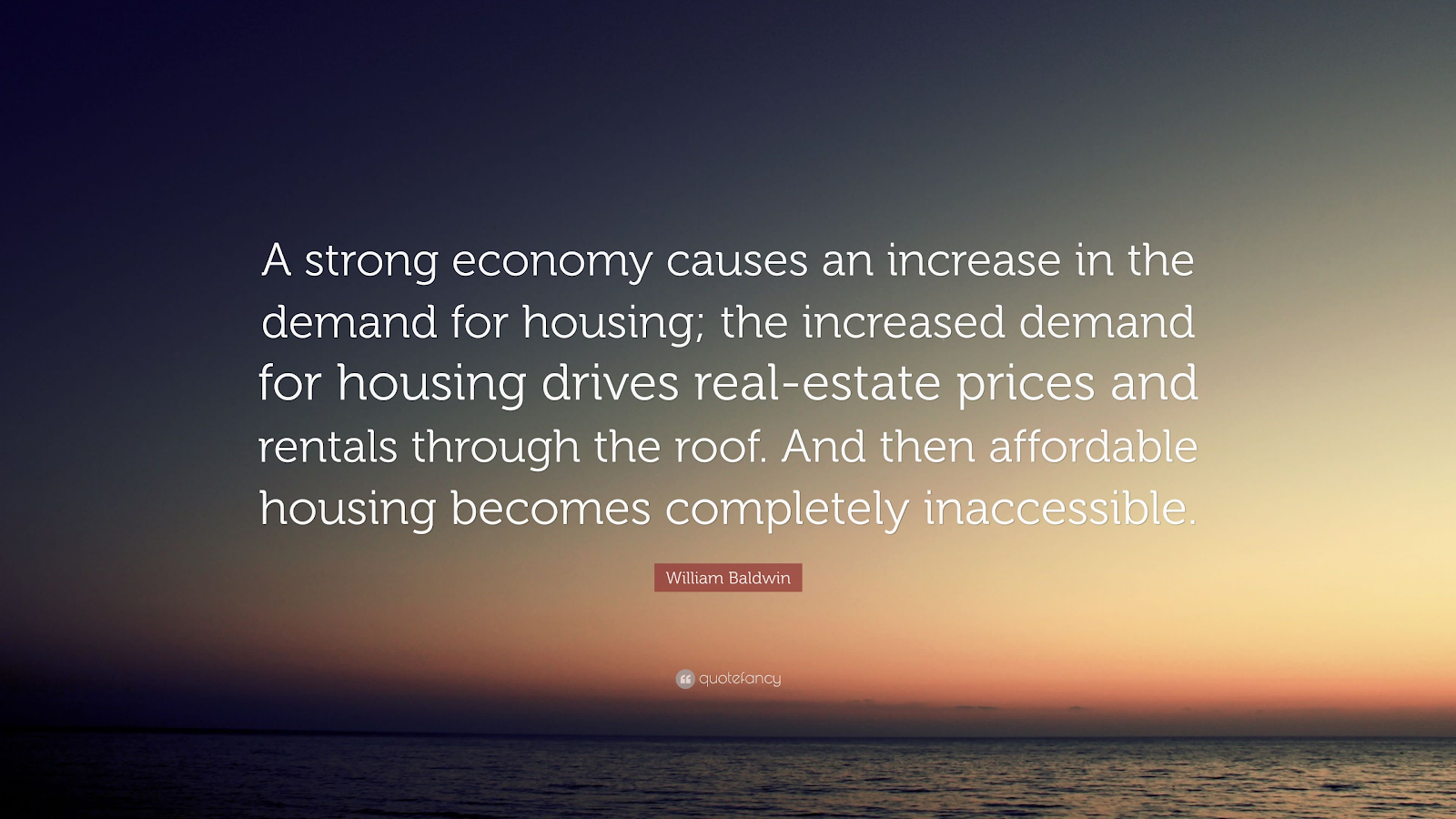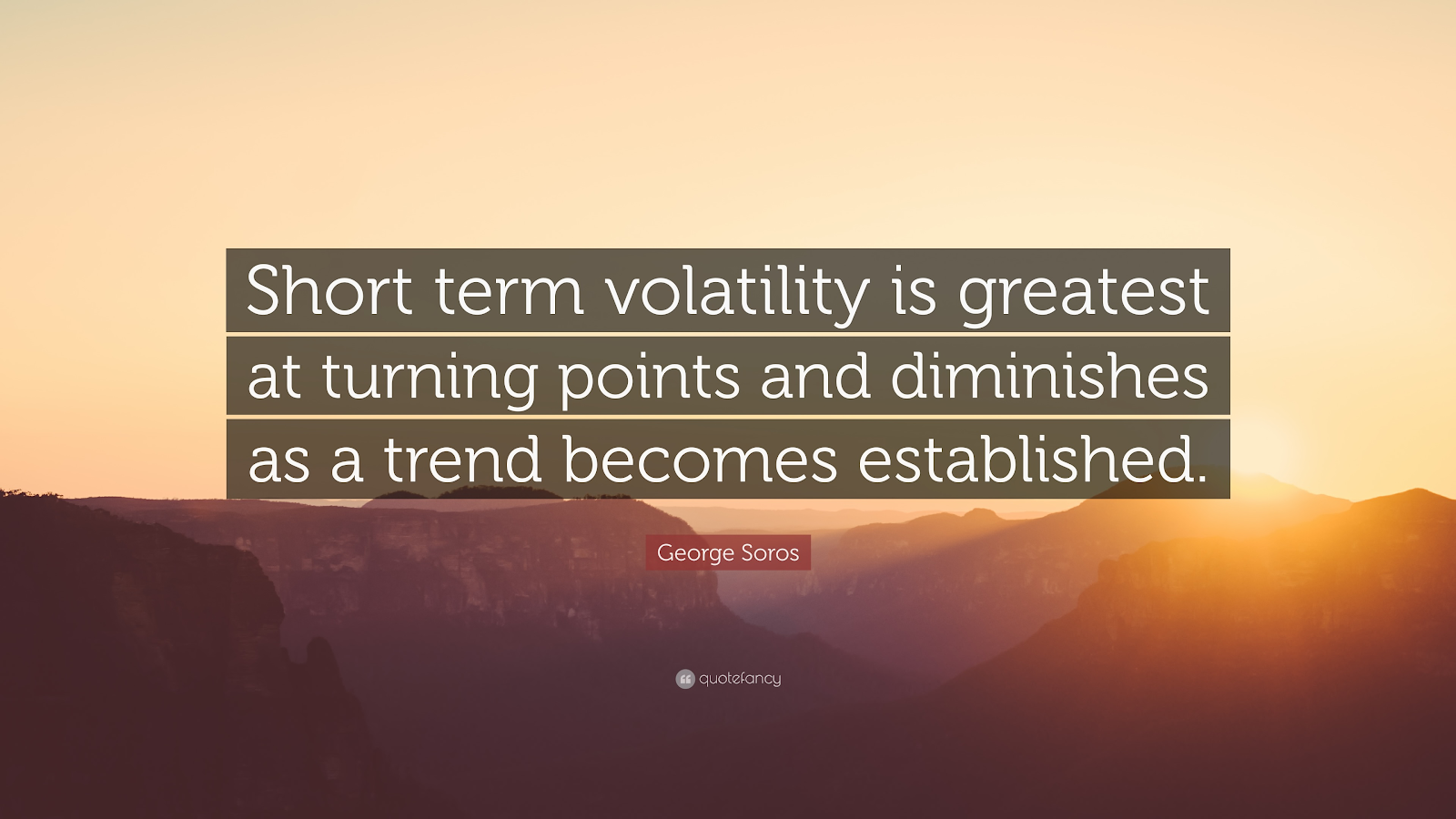When you apply certain economic principles to real estate markets, they become the signature expression of real estate economics. This body of competing economic principles directly affects real estate participants such as property owners and developers - under oath of macroeconomic forces - most appropriately in terms of supply and demand.
Demographics, interest rates, government policies (strata title etc), and the economy as a whole, ultimately affect the real estate markets; sometimes together, sometimes separately, but equally effective.
The Function Of A Real Estate Market
Real estate markets, including the real estate economy they impact, are influenced by several factors. But the major player within these scheme of things is supply and demand. Interested parties and stakeholders wishing to buy, sell, or develop real estate utter life into supply and demand in any given market.
Regardless, when it comes to real estate, despite their universal oneness as an economic principle, supply and demand separately have a unique definition.
In the real estate industry, the number of houses anticipating buyers’ interests significantly represent demand, and is coherently determined by factors such as demographics, income and the price of housing. Supply, on the other hand, points to housing stock currently available, and has so much to do with developers and renovators.
The major drivers of real estate supply and demand are basically market participants. In real estate jargon, this refers to property owners, renters, developers and renovators. When one of these participants build or use a house, certain factors (interest rates, the health of the economy, availability of credit, subsidies and other more controlling incentives) play into the scene of this initiation.
These factors command a significant influence on the personal finances of these participants, and gives them every right to determine when, how often, and at what price are properties being bought or sold.
The buying and selling behaviour of these participants, greatly dictates every supply and demand in the housing market. Consequently, however, their behaviour creates a slippery slope across a single market; hence, reflecting the health of the accommodating market.
Simultaneously, if both supply and demand are on equal terms or slightly higher, where, for instance, demand is a respectful distance above supply or vice versa, the economy of the market will prove healthy. The opposite is true also, in that, the health of the economy of the market will deteriorate.
The Importance Of Real Estate Economics
Likewise, knowing how the real estate market works, we understand the relationship between supply and demand. Knowing real estate economics, we can appreciate the existence of market conditions.
Wider in scope than its close relative of housing economics, real estate economics caters to research focused entirely on market trends that effect a structural change resulting in either a positive or negative impact on the industry, as a whole.
Real estate economics allows buyers and sellers the comprehensive knowledge of the forces that act on housing prices and transfer of titles within one’s local property market.
This thorough understanding also facilitates one’s ability to accurately predict the movement of housing prices, housing supply and demand, in order to be able to offer correct prices and draft compelling offers.
Real estate economics helps property buyers and sellers in precisely identifying the best practices for listing a home or the correct channel to traverse in determining the best time to purchase a house. It is the by-product of the relationship between supply and demand which deals a strong hand in the value of real estate and housing inventory on hand.
For instance, Port Moresby is currently experiencing a surge in housing supply in one of its major suburbs, say Waigani or Tokarara. Just because there's a growing supply of housing options, doesn't mean it's a good time to list your home as well. Why? Buyers can easily choose one of the new and cheap alternatives over yours. Besides,, both suburbs are currently in the developing stage, so if you hold off selling for now, the value is expected to increase once the new developments have passed, but there is still high interest in both locations.
So, immersing yourself in the knowledge of real estate economics has more happier connotations to it than settling for a mere understanding of it.
Real estate market participants
Supply and demand, thus far, have a huge impact on real estate economics, which are incarnations of two distinct groups of market participants: one that drives demand, the other dictates supply.
Market participants
#1 - Owners
Owners, in real estate terms, rightfully and legally own a house. However, they do not inhabit it. Instead, they rent the house to a third party, after purchasing it. Here, owners are synonymous with rental properties or commercial investment listings, and so forth.
#2 - Renters
A consumer is a general term used to describe a person who buys products and services for his/her own personal use. But such is the word's diversity that it has an undertone of different meanings and interpretations existing in different industry vocabulary. The real estate industry, for instance, consumers involve both renters and owner-users. Renters, in this case, are consumers who aren't investors, but exclusively use real estate by way of renting; hence, the name.
#3 - Owner-users
Owner-users, in this industry, are described as those who rightfully or legally own and inhabit a home; thus, they're sometimes classified as investors or consumers, and represent a better part of owner-occupied homes in a real estate market.
#4 - Renovators
Take note, renovators, though engaged in some form of development, aren't developers. This group participants specialize in renovating old buildings or houses, and then list these properties on the market either for purchase or rent.
#5 - Developers
Just like consumers, the word investors can take on a variety of meanings in different industries, but in real estate, it refers to developers and owner-users, owners and renovators. Developers, in this case, are investors who prepare undeveloped plots of land for building and construction, which eventually qualifies as new property development in the property market.
#6 - Facilitators
In real estate, facilitators describe those market participants who help speed up the process of developing and purchasing real estate. This group comprises banks, property lawyers, real estate brokers and the like.
Factors that affect the real estate market
By the same token, there are several factors that occasionally prompt the progress of a real estate market, namely the state of the economy, interest rates, buying power and a shift in the size of the population.
Parallel to these demand-side factors are house prices, which are insistent on existing inventory. With episodes of increasing demands and limited housing supply, people are vulnerable to rising house prices, increased rental fees, and even the risk of homelessness.
Furthermore, the nature of a factor that affects the real estate market is in direct proportion to its ability to influence, regardless of its origin.
Let’s now consider these factors:
1. The economy
The real estate market strongly resembles the state of the economy. If the economy is healthy and is progressing positively, expect the same with the property market. But if the economy is suffering, you can expect a real estate market riddled with high property prices, idle listings, and fewer to no sales.
While a real estate market is affected by the economy, the latter also has a source of influence in the form of GDP (or Gross Domestic Product).
Fortunately, there are some real estate markets that come with a twist. Markets with long-term leasing periods, as in the case of a building or apartment lots, are able to endure an economic downturn.
2. Unemployment
Next in line of factors that affect the real estate market is unemployment. This factor has a substantial impact on economic growth.
Only a handful of people are able to own a home even though the rate of unemployment can be high. Worse still, the fear of unemployment can also pilot a decline in the demand for housing.
People are of the mind that homeownership is merited on three fronts: personal savings, inheritance and mortgages, of which mortgages have always been the norm.
So, the central fear at this point is that when someone loses his or her job, provided they had obtained a loan earlier to purchase a house whilst employed, they won't be able to settle their loan outstanding and the house ends up being repossessed. This line of thinking spells less demand for housing, and many an unhappy connotation to that effect.
3. Interest rates
The magnitude at which interest rates come, play an important role in leveraging the supply and demand in the property market. For instance, lower interest rates tip the scale in favour of multiple opportunities to secure financing for home purchases, while high interest rates strengthen the opposite effect; thus, increasing the overall cost of buying a house.
The real estate market usually suffers under high interest rates. However, whether high or low, interest rates are submerged in government policies or subsidies that usually entertains manageable high purchases.
4. Government policies and subsidies
Government policies and subsidies is a broad subject that amasses various corresponding branches which are simplified into tax credits, deductions and other interrelated incentives; not to mention strata title schemes.
5. Demographics
This particular feature encompasses every characteristic that assists in describing the makeup of a population (in terms of race, age, income range, housing preference, population growth, etc).
Established within real estate economics, these moving pieces dictate housing prices and demand. Even so, exerting a substantial dose of venom on the market.
For instance, you’re currently employed and own a 3 bedroom high set house. It’s been 20 years since you first started formal employment. Now you’re considering retirement and selling your home, in order to invest in smaller properties. Imagine others like you. This change in conscience alone ensuing a cause of action signals a shift in the real estate market. Although a single statistic, your decision has spiralled into a tsunami of hail marys in the market, becoming one of the factors that dictate housing prices and demand.
This in mind, we can now see how demographics, with its various hints, establishes itself as one of the factors that influence the real estate market.
6. Housing supply
Housing supply is normally ensured by market participants like developers and renovators, by way of building and construction, and renovations respectively. Of course, the project wouldn't be conclusive without the involvement of facilitators. Nevertheless, the number of homes resurrected or prepared for listing and rental are centrally governed by existing inventory and project costs.
7. Housing price
Home prices feature well into the demand for housing, simply because they act as an indicator in determining people's investment habit in the real estate market. Common sense dictates that, the higher the price, the lower the demand, and vice versa. The elasticity of prices in line with demand can also be transcribed into various forms such as current inventory of housing, location, buying power and interest rates.
8. Consumer confidence
The importance of confidence, in real estate, is that it helps in realizing whether or not people are willing to take the risk of getting a loan for a home purchase. The absence of confidence, for example, is when you allow the fear of falling house prices to defer your purchase.
9. Mortgage availability
In a good year, banks tend to be keen on lending mortgages, and they can allow people to borrow even large sums of income. The ensuing cause and effect is an ease on getting loans with an increase in house prices, because many people can afford them during this interlude.
Unfortunately, such an occurrence is only common overseas, and rarely heard of in PNG. be that as it may, that’s what it’s meant by mortgage availability.
Bottom line
The article outlined several contributing factors that directly and indirectly influence the real estate market. Although few of these aforementioned factors narrate a clear-cut relationship between them and the real estate market, in practice, the outcome can vary.
A comprehensive understanding of these factors can mean the difference between a successful buying and selling process, and one that reeks of scepticism, frustration and doubts.
This article is meant for informational purposes only and is not intended to be construed as real estate, or investment advice. Hausples encourages you to reach out for professional help regarding your own real estate situation.
Subscribe to our email newsletter to get the latest updates delivered right to your inbox for FREE!.













Comments